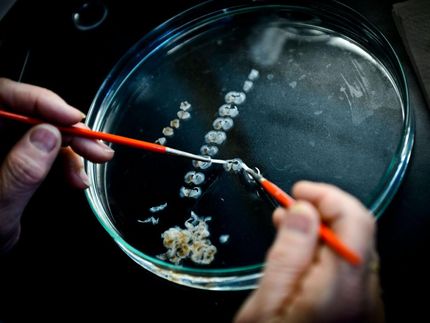apceth Starts First Phase I/II Clinical Study on Somatic Cell Therapy for Peripheral Arterial Occlusive Disease
30 patients involved in the study: initial results expected by mid 2012
Advertisement
The Munich biotech company apceth started its first phase I/II clinical study on somatic cell therapy for advanced peripheral arterial occlusive disease (pAOD) after angioplasty.The aim is to investigate the tolerability and efficacy of somatic cell therapeutics developed by apceth for the treatment of pAOD. The study is designed as an open, randomised, monocentre study with two parallel patient groups and is being conducted in cooperation with the Isar-Medizinzentrum in Munich. The first patients have already been treated. A total of 30 patients are to be recruited into the study by March 2012. The initial results of the study are expected by mid 2012.
Causes and treatment options for pAOD
Around 4.5 million people in Germany suffer from peripheral arterial occlusive disease. The most common cause of pAOD is "hardening of the arteries", arteriosclerosis. Since the illness is often not diagnosed in time, if at all, the consequences for those affected can be fatal: 75% of pAOD patients die of heart attack and stroke. Peripheral arterial occlusive disease is one of the most common chronic diseases and is still increasing, particularly in the industrialised countries. Those affected suffer from progressive narrowing or even complete occlusion of major and minor blood vessels that supply the limbs with blood. The treatment options for pAOD include bypass surgery, angioplasty and, in severe cases, amputation of the foot and leg.
Adult stem cells offer hope
Due to the complexity of pAOD many patients cannot be healed with the current treatment approaches. "That's why stem cell-based treatment offers patients with advanced pAOD a highly promising alternative to stimulate the growth of new blood vessels and tissue regeneration", explained apceth's CEO Dr Christine Günther. In turn, this should increase the blood supply to the affected leg and promote healing of the chronic ischaemic wounds associated with pAOD. "We are proud that we have already started clinical trials on our first cell therapy product", said Dr Christine Günther.
Course of the study
As part of the clinical study on pAOD a small amount of bone marrow is first taken from the patients. The mesenchymal stem cells are isolated from the bone marrow sample and propagated as cell cultures under controlled conditions. The apceth team then prepares a purified and accurately defined fraction of the patient's own (autologous) stem cells for therapeutic use. These purified stem cells are available just a few weeks after taking the bone marrow sample and are then returned to the patient by intravenous infusion. "In this study we are documenting the results with regard to the regeneration of tissue and the blood supply. This enables us to draw conclusions about the efficacy and tolerability of stem cell therapy in pAOD", explained Christine Günther.



























































